
🚨 WE’RE HIRING 🚨Remote & Global
Communications Lead (4 days/week)!
📢 Represent REI across our external communications
🌍 Support 100+ groups worldwide
⏳ Deadline: 25 Jan 2026, 23:59 BST
👉 Apply: bit.ly/REIcommslead
@rethinkecon.bsky.social
Rethinking Economics International⚡️A youth movement campaigning to make economics work for people, the planet, and social justice in the classroom and beyond.

🚨 WE’RE HIRING 🚨Remote & Global
Communications Lead (4 days/week)!
📢 Represent REI across our external communications
🌍 Support 100+ groups worldwide
⏳ Deadline: 25 Jan 2026, 23:59 BST
👉 Apply: bit.ly/REIcommslead

Have you subscribed to our newsletter yet?
rethinkeconomics.org/newsletter/

📚 Weekend reads with the RE #Blog
#Saturday
Who is Homo Economicus? Rethink the “rational maximiser” and centre care & interdependence. 👉 bit.ly/3JnQciH
#Sunday
The Secret History of David Ricardo: Beyond Econ 101 myths about trade. 👉 bit.ly/4oJj6tS

Join @positivemoneyuk.bsky.social and @greencb.bsky.social for the launch of our East and Southeast Asia Green Central Banking Scorecard 👇
📅Weds 10th September
⏰ 9am-10:30am BST / 4pm-5:30pm MYT / 5pm-6:30pm JST
🖥️ Zoom
➡️Find out more and register:

The climate, biodiversity & social crises share the same root: our current economy.
🌍 Join us at Next Economies Summit 2025 (12–14 Sept, Istanbul) to co-create just & regenerative futures.
🔗 Register: bit.ly/3JlzCzV
#NextEconomies2025

📚 Weekend Reads with the RE Blog
👉 Saturday: The decline of History of Economic Thought (HET) in economics classrooms—and why it matters. bit.ly/45LSD6j
👉 Sunday: What would advertising look like if aligned with degrowth, sufficiency & sustainability? bit.ly/41QVPfB
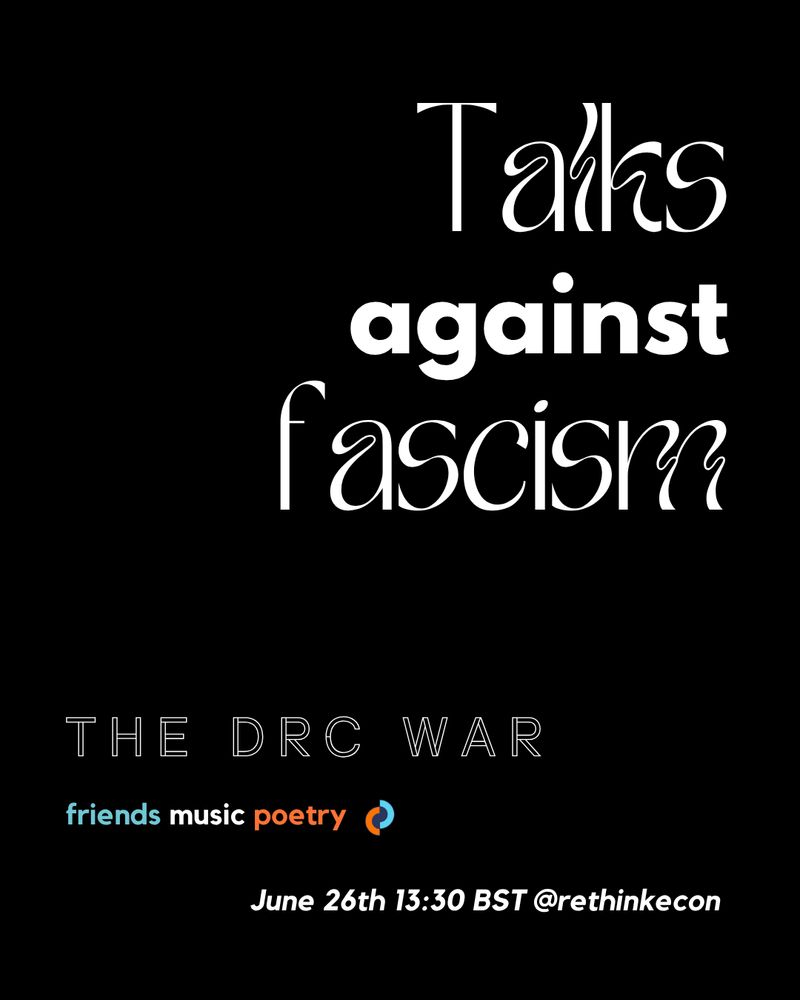
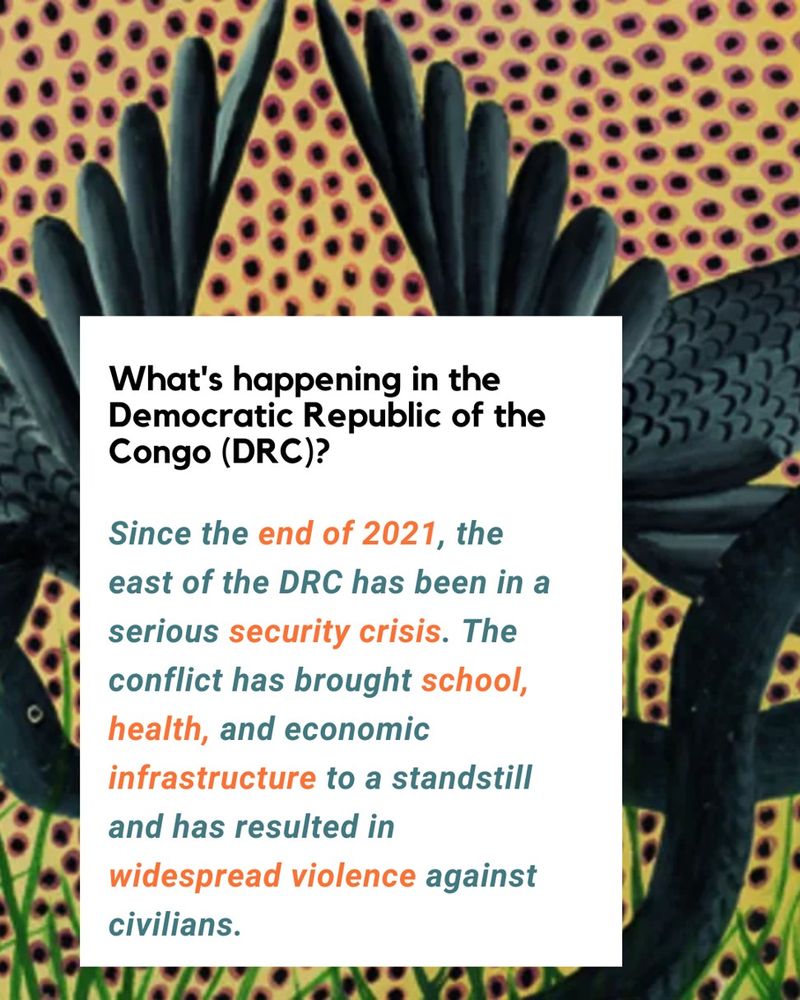 10.06.2025 15:44 — 👍 1 🔁 0 💬 0 📌 0
10.06.2025 15:44 — 👍 1 🔁 0 💬 0 📌 0
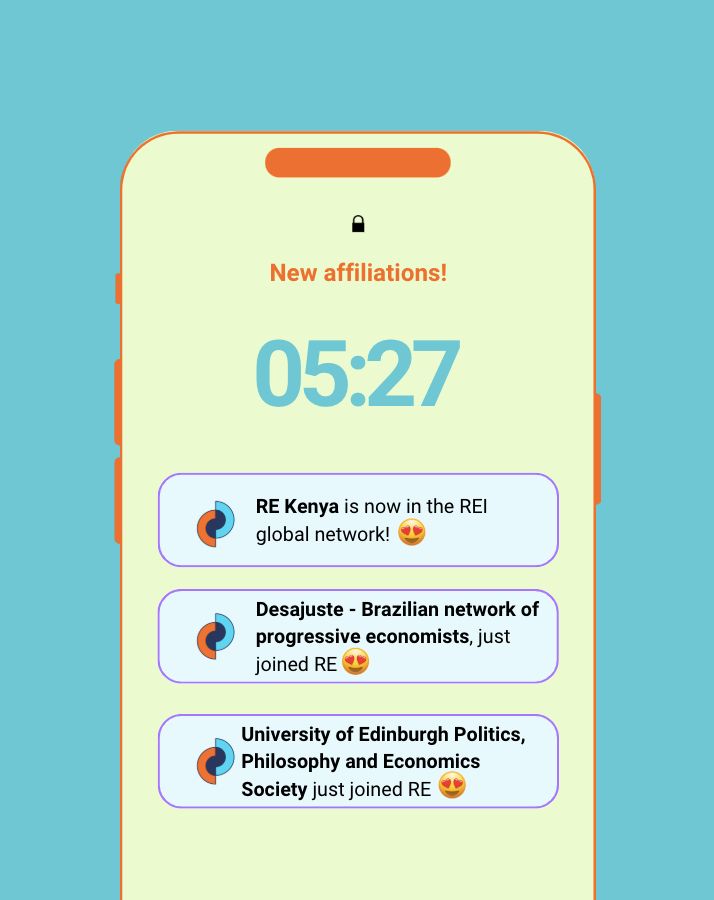 04.06.2025 02:06 — 👍 4 🔁 1 💬 0 📌 0
04.06.2025 02:06 — 👍 4 🔁 1 💬 0 📌 0
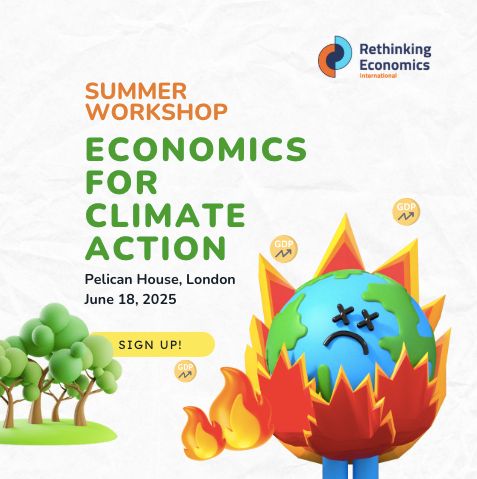
Tired of vague climate talk with no economic backup? 🌀
Join our Economics for Climate Action workshop!
📅 June 18 | 🕔 5–8PM
📍 London
⚫Sign up: bit.ly/4mzDPiQ...
📩 tais.real@rethinkeconomics.org
#ClimateJustice #EcologicalEconomics #EconForClimate #RethinkEconomics
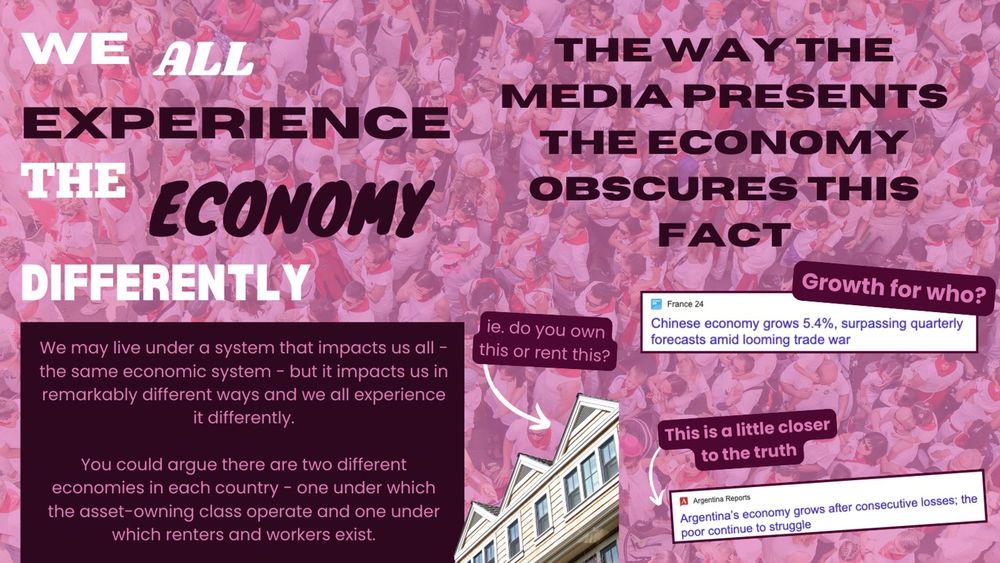
Photo of people in a crowd with pink filter over. Text explains that we all experience the economy differently despite living under the same system and that the way the media talks about the economy obscures this. A screenshot of a headline talking about growth is an example but growth for who?
We need a new system.
To get there, we need new narratives for how we talk about the system.
Narratives that link economic policies to people's lived experiences.
That's one of the reasons Rethinking Economics exists! Join us: www.rethinkeconomics.org/get-involved/
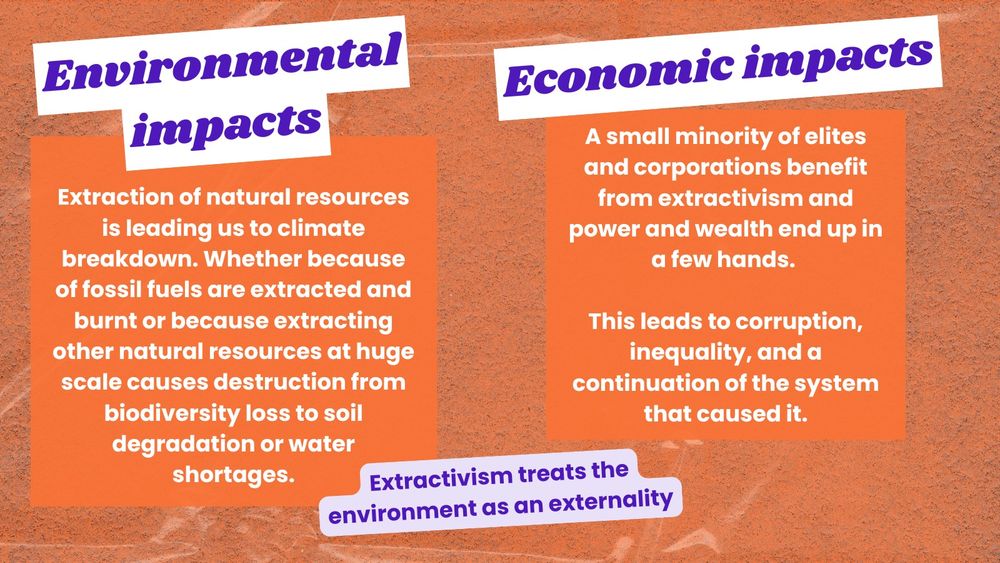
Orange background, purple title with white highlight says 'environmental impacts'. Text says: "Extraction of natural resources is leading us to climate breakdown. Whether because of fossil fuels are extracted and burnt or because extracting other natural resources at huge scale causes destruction from biodiversity loss to soil degradation or water shortages. Even sustainable resources become unsustainable under extractivism because they are extracted at such a high rate that they can’t naturally replenish quick enough. Extractivism treats the environment as an externality"
Extractivism takes land, resources, and essentials away from the communities that need it all for the profit of a small minority.
28.04.2025 14:17 — 👍 0 🔁 0 💬 0 📌 0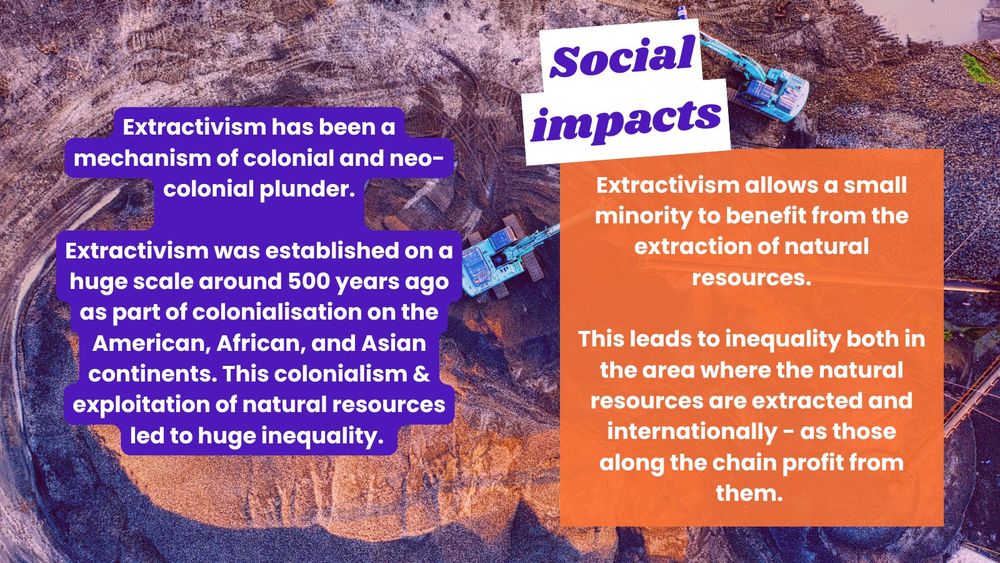
Same background as the previous slide. Text says: A photo of two diggers by a mine with a purple and orange hue. Text says: "Extractivism has been a mechanism of colonial and neo-colonial plunder. Extractivism was established on a huge scale around 500 years ago as part of colonialisation on the American, African, and Asian continents. This colonialism & exploitation of natural resources led to huge inequality. Social impacts: Extractivism allows a small minority to benefit from the extraction of natural resources. This leads to inequality both in the area where the natural resources are extracted and internationally - as those along the chain profit from them."
Extractivism is bad for people & planet.
28.04.2025 14:17 — 👍 1 🔁 0 💬 1 📌 0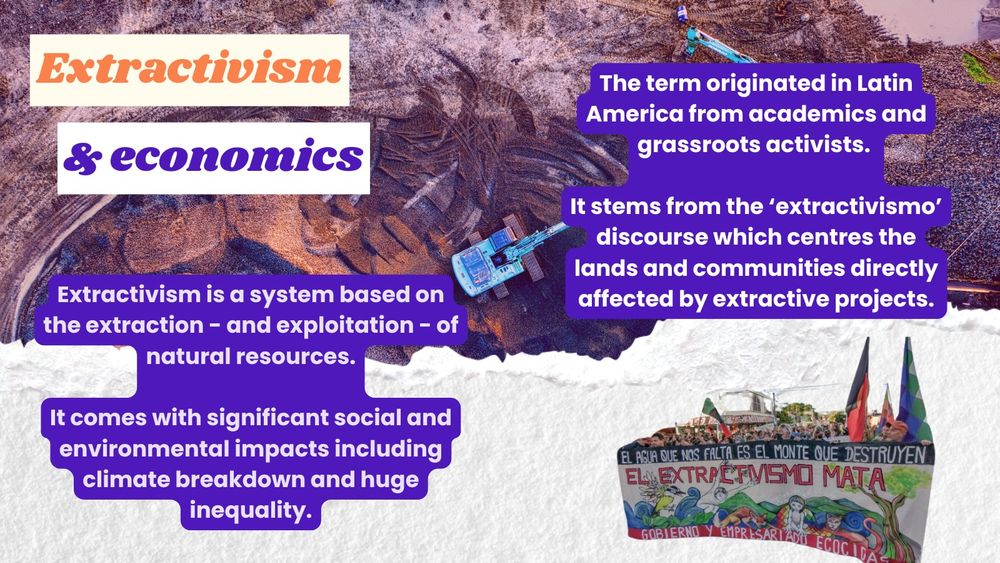
A photo of two diggers by a mine with a purple and orange hue. Over the top block highlighted text in orange and purple says 'Extractivism & economics'. Extractivism is a system based on the extraction - and exploitation - of natural resources. It comes with significant social and environmental impacts including climate breakdown and huge inequality. The term originated in Latin America from academics and grassroots activists. It stems from the ‘extractivismo’ discourse which centres the lands and communities directly affected by extractive projects." A photo of a protest banner with a slogan in Spanish is below.
The environment as an externality? That's exactly how is works under an extractivist system.
28.04.2025 14:17 — 👍 2 🔁 1 💬 1 📌 0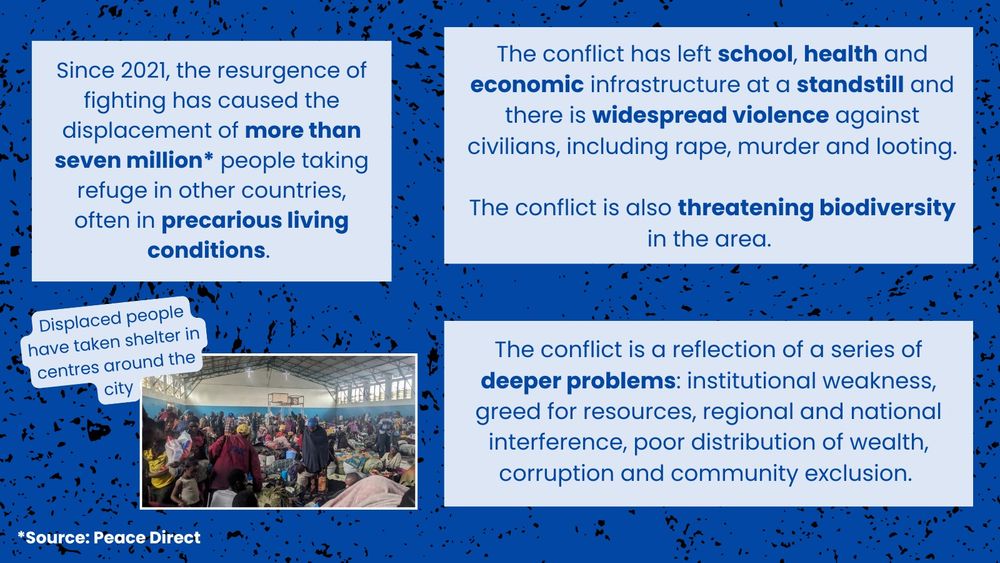
Text says: Since 2021, the resurgence of fighting has caused the displacement of more than seven million* people taking refuge in other countries, often in precarious living conditions. Below is a photo of displaced people taking shelter in a centre around the city it shows lots of people and children in a hall. The source of the figure quoted as 'more than seven million' is peace direct. The conflict has left school, health and economic infrastructure at a standstill and there is widespread violence against civilians, including rape, murder and looting. The conflict is also threatening biodiversity in the area. The conflict is a reflection of a series of deeper problems: institutional weakness, greed for resources, regional and national interference, poor distribution of wealth, corruption and community exclusion.
School, health, and economic infrastructure are at a standstill and millions of people have been displaced.
23.04.2025 11:33 — 👍 1 🔁 1 💬 1 📌 0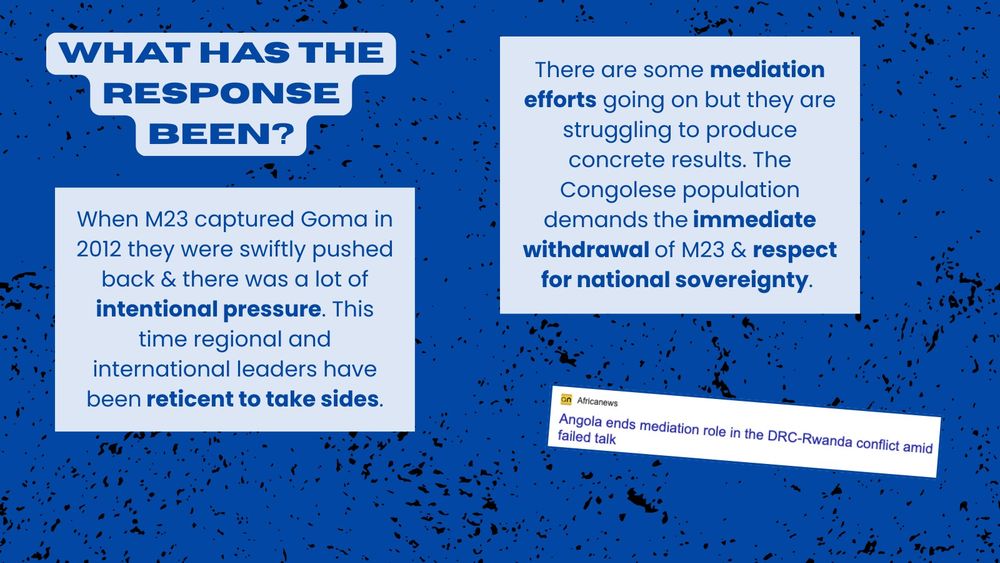
Bold highlighted title says: What has the response been? Text says: When M23 captured Goma in 2012 they were swiftly pushed back & there was a lot of intentional pressure. This time regional and international leaders have been reticent to take sides. There are some mediation efforts going on but they are struggling to produce concrete results. The Congolese population demands the immediate withdrawal of M23 & respect for national sovereignty. Below is a newspaper headline that says Angola ends mediation role in DRC-Rwanda conflict amid failed talk.
Joseph Kabila was reported as being in North Kivu, an area occupied by the M23.
Although Congolese citizens are not prohibited from traveling to the areas occupied by the M23 movement, his presence raises questions.
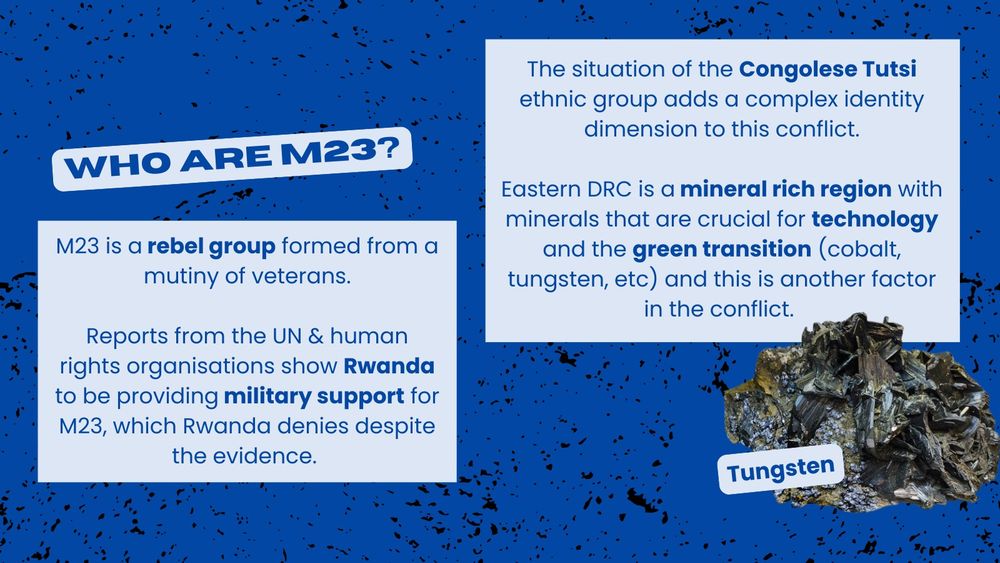
Bold highlighted title says: Who are M23?. Text says: M23 is a rebel group formed from a mutiny of veterans. Reports from the UN & human rights organisations show Rwanda to be providing military support for M23, which Rwanda denies despite the evidence. The situation of the Congolese Tutsi ethnic group adds a complex identity dimension to this conflict. Eastern DRC is a mineral rich region with minerals that are crucial for technology and the green transition (cobalt, tungsten, etc) and this is another factor in the conflict. Beside is a photo of a block of Tungsten.
As well as this, the former president of the DRC, Joseph Kabila's shadow still hangs over the dynamics of the East, especially since his name often comes up in informal discussions behind the scenes of local alliances.
23.04.2025 11:33 — 👍 1 🔁 0 💬 1 📌 0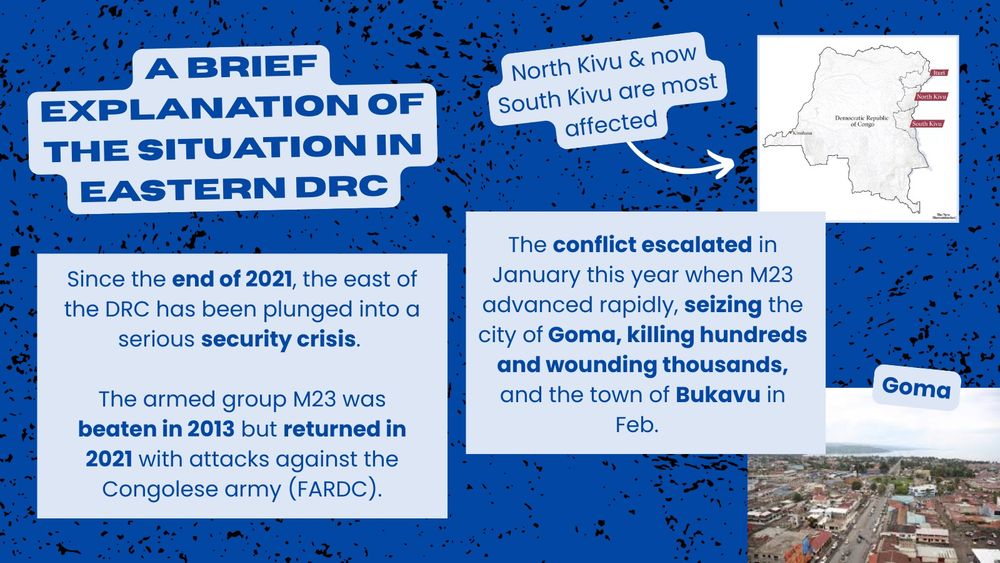
All the slides have a dark blue background with bold, highlighted text that says A brief explanation of the situation in eastern DRC. 'Since the end of 2021, the east of the DRC has been plunged into a serious security crisis. The armed group M23 was beaten in 2013 but returned in 2021 with attacks against the Congolese army (FARDC).' And a map of North and South Kivu where most of the conflict is. The conflict escalated in January this year when M23 advanced rapidly, seizing the city of Goma, killing hundreds and wounding thousands, and the town of Bukavu in Feb. Below is a photo of a street in Goma with flat roofed houses running down the side.
Here's our brief explainer on the situation in Eastern DRC ⬇️
23.04.2025 11:33 — 👍 1 🔁 0 💬 1 📌 0Join our next webinar to help you bring doughnut econ into your teaching - tomorrow!
16.04.2025 14:22 — 👍 0 🔁 0 💬 0 📌 0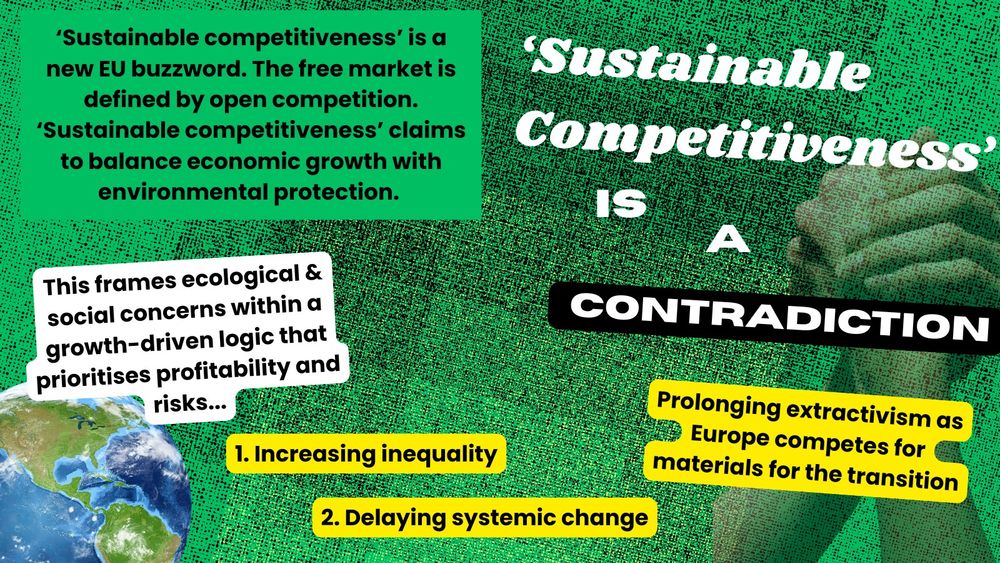
Green and black background with two arms in an arm wrestle. Curved white text says 'Sustainable competitiveness' is a contradiction. ‘Sustainable competitiveness’ is a new EU buzzword. The free market is defined by open competition. ‘Sustainable competitiveness’ claims to balance economic growth with environmental protection. This is a contradiction. it frames ecological & social concerns within a growth-driven logic that prioritises profitability. Beside is a photo of a world with text which says: Which risks protecting this (& us!). If we keep framing green policies in a competitive lens we risk: Increasing inequality, Delaying systemic change, Prolonging extractivism as Europe competes for materials for the transition.
In Jan, Rethinking Economics hosted a @eeb.org workshop to discuss the EU's latest buzzword.
Here are some key things that came out of it.
Read more in our latest blog post: bit.ly/42g6BNi
Our next webinar to support you to get doughnut econ into your teaching is coming up next Thursday!
📅 Thursday 17th April - 9-10.30am BST
Sign up here: actionnetwork.org/events/dough...
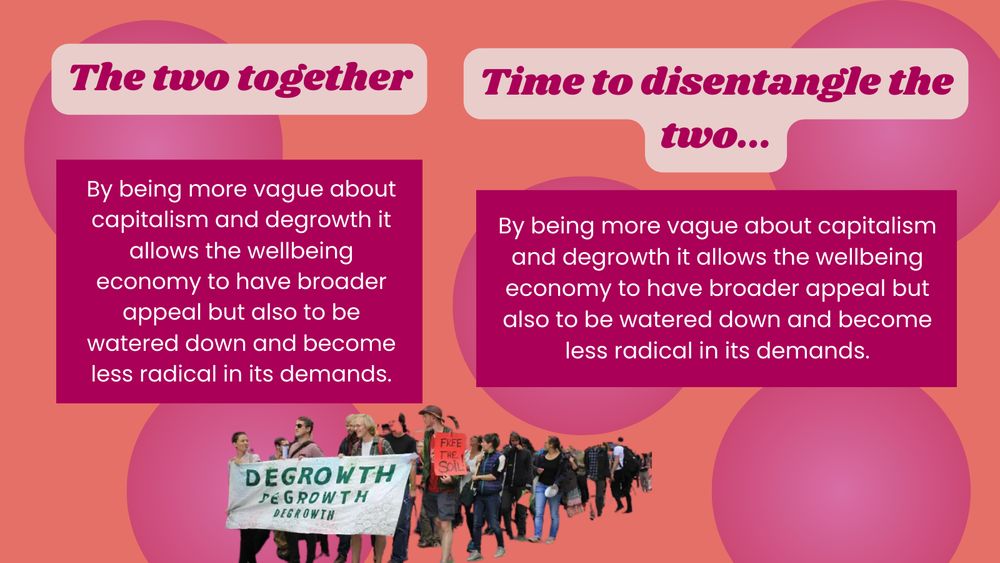
What do you think? Is it time to detangle the two?
Let us know!
Read more: bit.ly/4js61lm
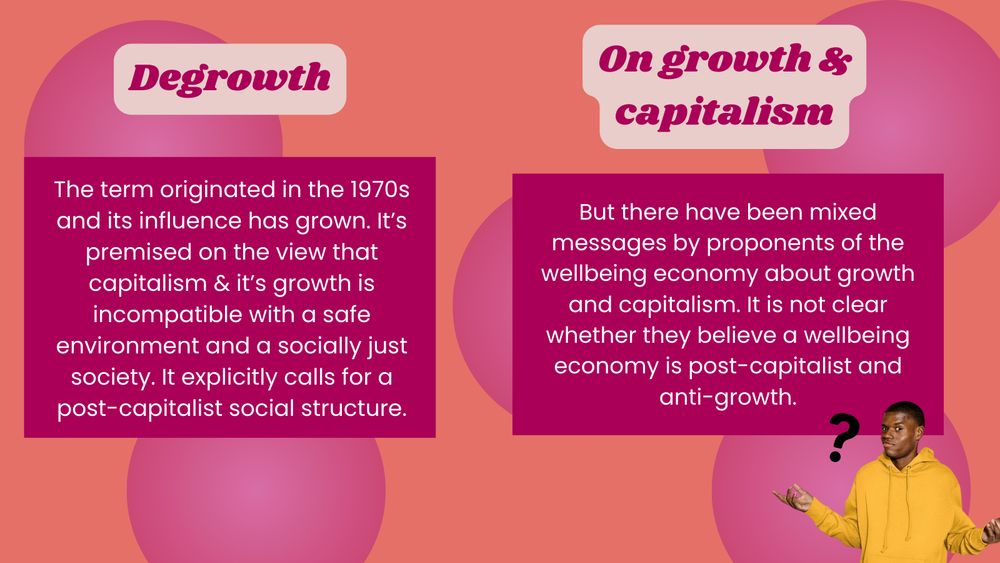
Pink background with pink circles and text that says: The term originated in the 1970s and its influence has grown. It’s premised on the view that capitalism & it’s growth is incompatible with a safe environment and a socially just society. It explicitly calls for a post-capitalist social structure. But there have been mixed messages by proponents of the wellbeing economy about growth and capitalism. It is not clear whether they believe a wellbeing economy is post-capitalist and anti-growth. Below is a photo of a person shrugging their shoulders with a question mark beside them.
Having strong stances on degrowth and capitalism is one of the areas in which the two ideologies differ.
09.04.2025 10:51 — 👍 1 🔁 0 💬 1 📌 0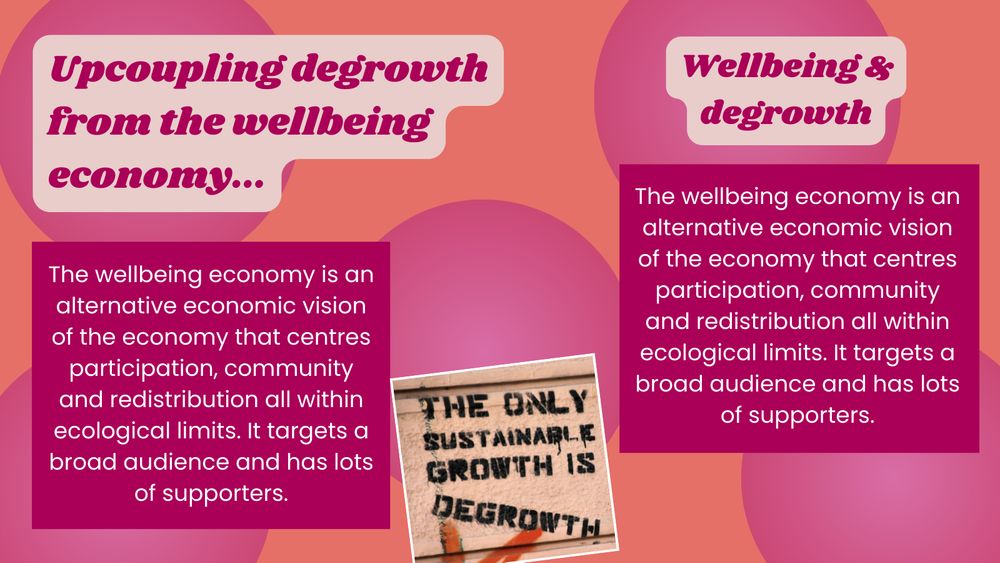
Pink background with pink circles and text saying: "The wellbeing economy is an alternative economic vision of the economy that centres participation, community and redistribution all within ecological limits. It targets a broad audience and has lots of supporters. It draws a lot of ideas from the post-growth movement. There’s an idea that by centering wellbeing more people will be brought onboard than if it had an ‘ideology-based’ name - ie degrowth." Beside is a photo of graffiti that says 'the only sustainable growth is degrowth'.
The wellbeing economy is built on ideas from the degrowth movement but there's actually quite a bit of difference between the two movements.
09.04.2025 10:51 — 👍 2 🔁 1 💬 1 📌 0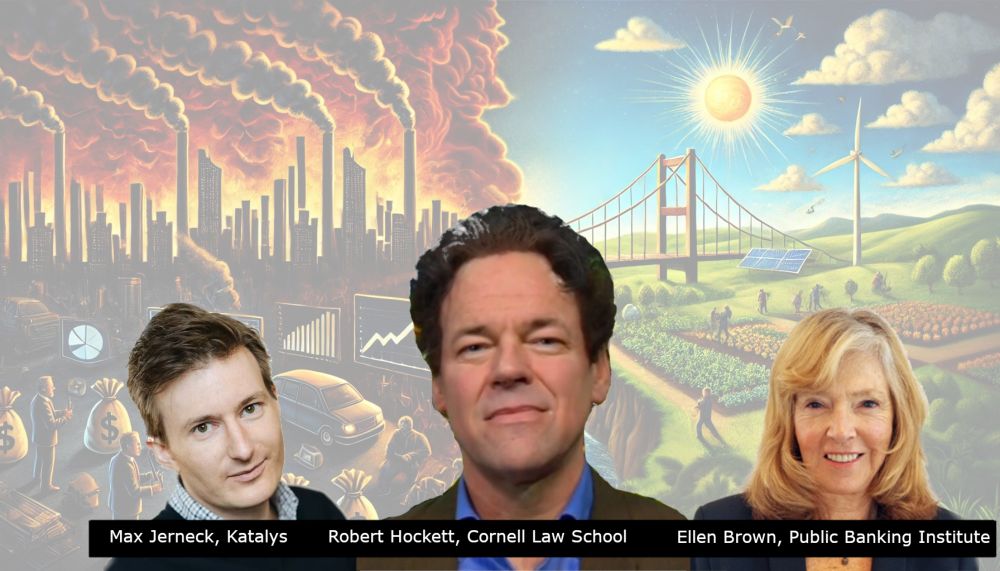
Our financial system is broken - we can all agree
So how do we create a sustainable system for people & planet?
Join this webinar with @roberthockett.bsky.social, @maxjerneck.bsky.social & Ellen Brown, Public Banking Institute
📅 Wednesday 23 April (7-8.30pm CEST)
▶️ monreform.org/webinar-hock...
capitalism frames sustainability as a "personal choice" while fossil fuel companies collect $7 million in subsidies every minute.
this isn't about your choice of straw — it's about power.
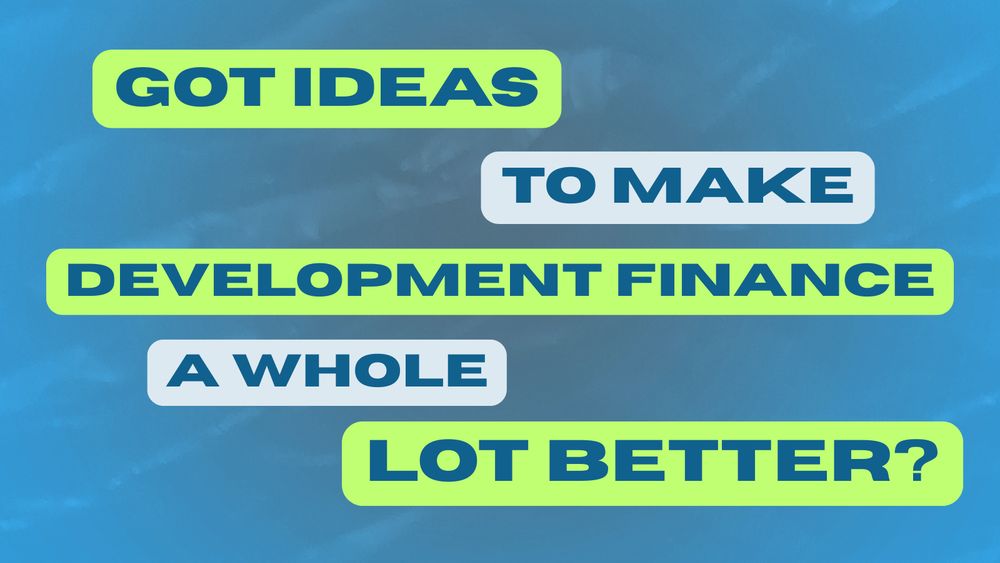
Blue background with blue text over the top that says 'got ideas to make development finance a whole lot better?'
Get the chance to join the International Conference on Financing for Development ⬇️
@unyouthaffairs.bsky.social will support five 18-35-year-old's from: Afghanistan, Iraq, Lebanon, Libya, State of Palestine, Syrian Arab Republic, Tunisia to join!
Deadline: Thursday 10th April
Apply: bit.ly/3RB0b54
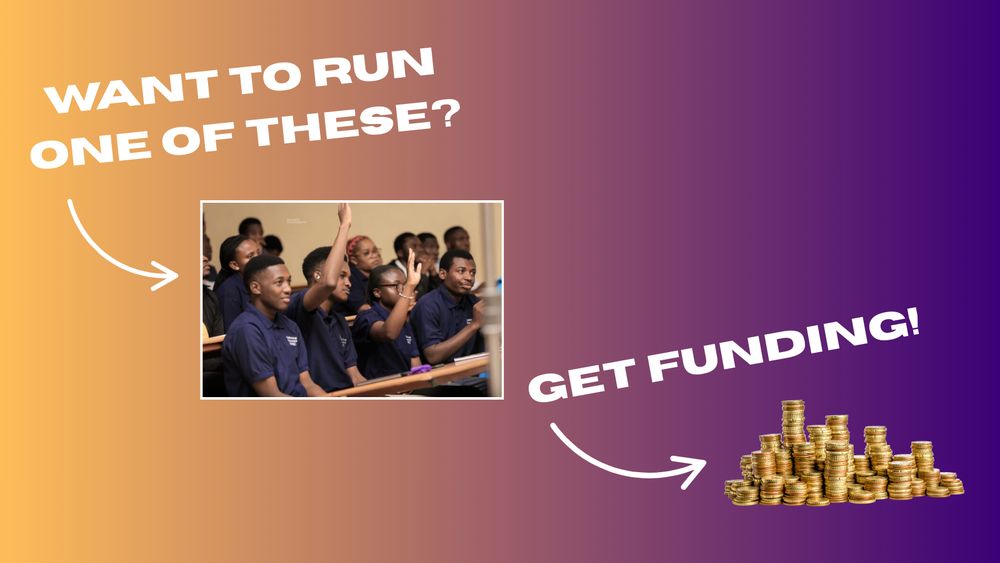
A yellow and purple gradient background with block white text over the top that says 'want to run one of these?' with a white arrow pointing to a photo of students raising their hands at an event at Copperbelt uni. Beside is white text saying 'get funding' with an arrow pointing at a photo of coins.
Got a great idea for an event, campaign, or activity?
Apply for our activity fund!
Deadline: 30th April
Apply: bit.ly/47VDwHT
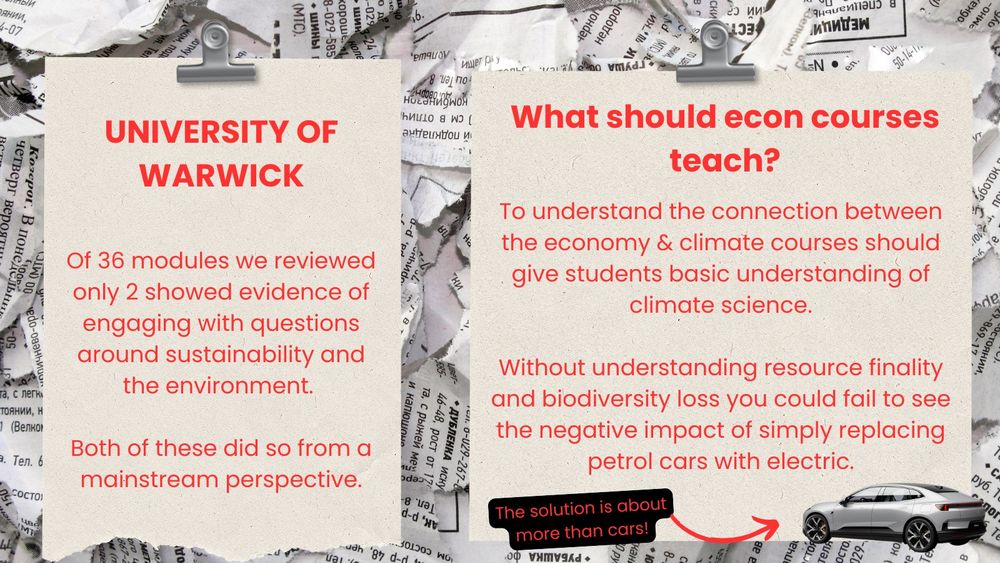
Background is a collage of newspaper clippings on top are clipboards with text about University of Warwick failing on climate. Of the 36 modules we graded at Warwick University only 2 discussed sustainability and the environment and both did so from a mainstream perspective. Beside is another clipboard saying that econ courses should teach basic understanding of climate science - otherwise people might fail to see the negative impact of just replacing petrol cars with electric. Beside is a photo of an electric car.
By understanding key climate issues you can see through false solutions and come up with important ideas for how the economy can actually support the planet (not simply extract from it!)
31.03.2025 14:20 — 👍 0 🔁 0 💬 0 📌 0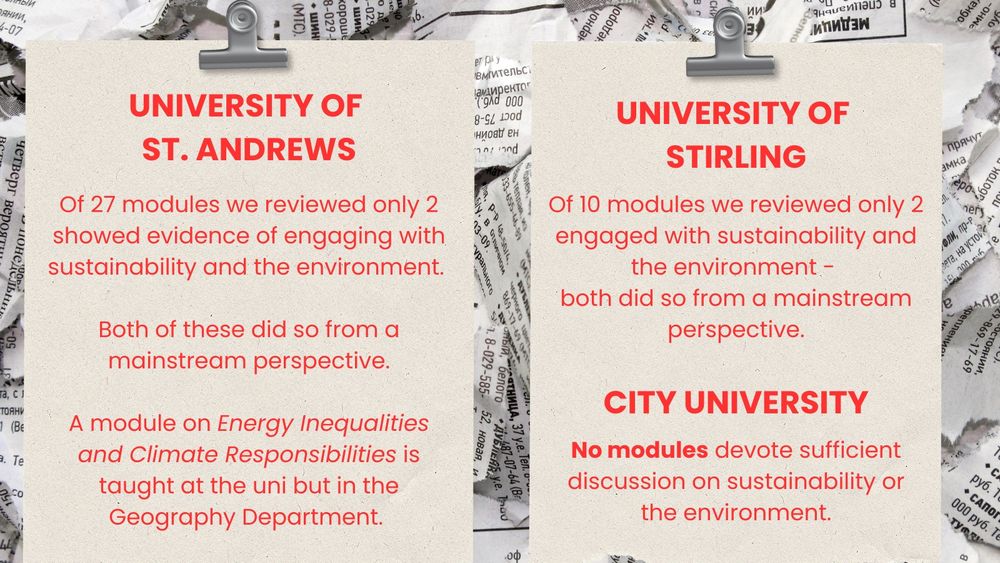
Background is a collage of newspaper clippings on top are clipboards with text about University of St. Andrews, City Uni and Uni of Sterling failing on climate. Of the 27 modules we graded at St Andrews only 2 discussed sustainability and the environment and both did so from a mainstream perspective. At Sterling of the 10 modules only 2 did and both did from a mainstream perspective. At City no modules covered these subjects.
In order to be able to think like a 21st Century economist you need to have an understanding of core environmental issues and concepts - from sustainable food systems to just resource distribution.
31.03.2025 14:20 — 👍 0 🔁 0 💬 1 📌 0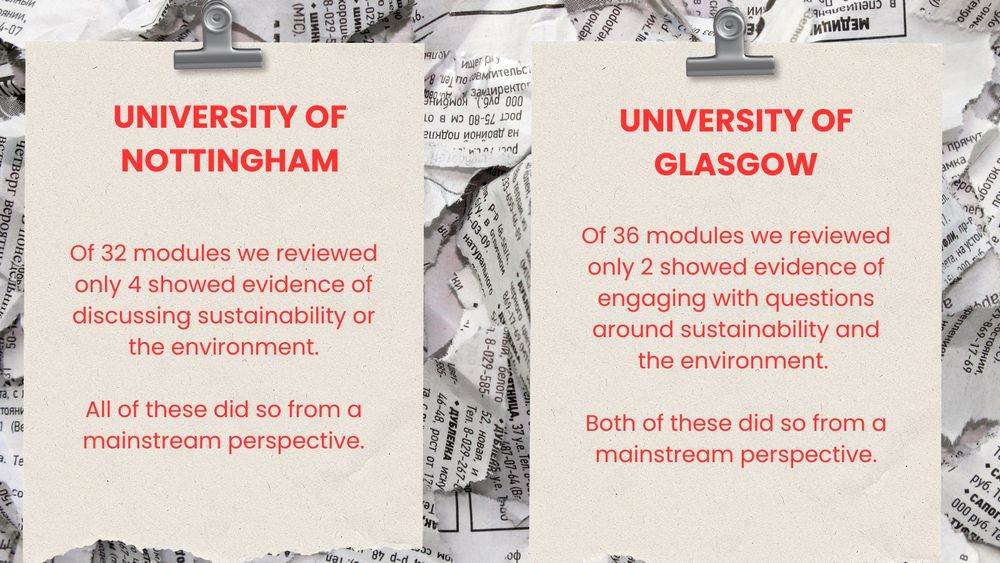
Background is a collage of newspaper clippings on top are clipboards with text about University of Nottingham and Uni of Glasgow failing on climate. Of the 32 modules we graded at University of Nottingham only 4 discussed sustainability and the environment and all four did so from a mainstream perspective. At Glasgow of the 36 modules only 2 did and both did from a mainstream perspective.
We need econ courses that don't only treat the environment as an externality.
We need econ courses that acknowledge the interconnection between the economy and the environment.